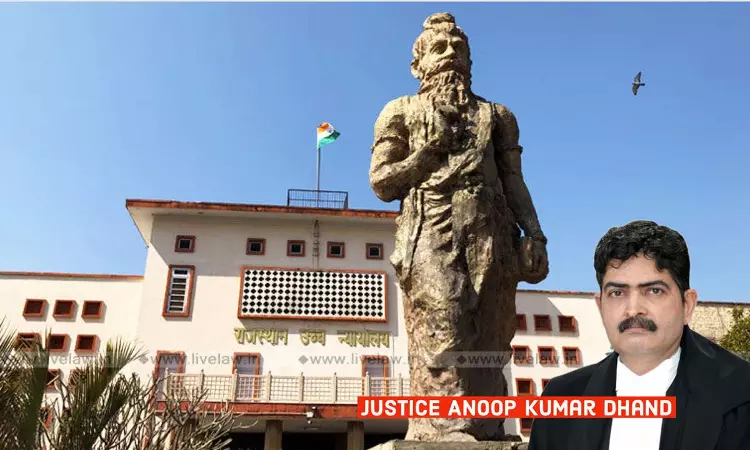- Home
- /
- High Courts
- /
- Rajasthan High Court
- /
- S. 2(2) Hindu Succession Act Is...
S. 2(2) Hindu Succession Act Is 'Barrier' For Tribal Women To Lay Claim Over Father's Property: Rajasthan High Court Suggests Amendment
Nupur Agrawal
4 Aug 2025 9:00 AM IST
The Rajasthan High Court has opined that when daughters belonging to non-Scheduled Tribe (“ST”) communities were entitled to equal share in father's property, there was no reason to deny the same right to the daughters of the ST community. Section 2 of the Hindu Succession Act lays down the scope of application of the Act, and Section 2(2) gives states that nothing contained in the Act...
The Rajasthan High Court has opined that when daughters belonging to non-Scheduled Tribe (“ST”) communities were entitled to equal share in father's property, there was no reason to deny the same right to the daughters of the ST community.
Section 2 of the Hindu Succession Act lays down the scope of application of the Act, and Section 2(2) gives states that nothing contained in the Act shall apply to the members of any Scheduled Tribe within the meaning of clause (25) of Article 366 of the Constitution unless the Central Government, by notification in the Official Gazette, otherwise directs.
Noting that Section 2(2) of the Act was operates as "barrier in the way of female tribal asserting their rights in their father's property", Justice Anoop Kumar Dhand said that it was "right and high time" for the Union Government to revisit the provision and if deemed fit to "amend the same" to safeguard and promote the rights of Female Members of the Scheduled Tribe community.
“Female Tribal is entitled to parity with Male Tribal in the matters of intestate succession…To deny equal rights to the daughters belonging to the Tribal communities, even after more than seven decades of independence, is manifestly unjustified…This Court hopes and trusts that the Central Government will look into the matter and take appropriate decision in the light of the direction issued by the Hon'ble Supreme Court in the case of Kamla Neti (Supra), and will further take appropriate steps by taking into consideration the fundamental right of equality, personal liberty, non-discrimination, etc. guaranteed under Articles 14, 15 and 21 of the Constitution of India in favour of Tribal Females.”
The Court was hearing a petition filed against the order of the Board of Revenue that had rejected the petitioner's application seeking declaration of her khatedari rights in her father's land, on the ground that since the petitioner was a member of the ST, having no brothers, she did not possess any right to succession in the ancestral property.
After hearing the contentions, the Court made reference to Supreme court decisions of Kamla Neti (Dead) v the Special Land Acquisition Officer (2023) and Ors., Tirth Kumar and Ors. v Dadu Ram and Ors. (2024) in which it was stated that unless otherwise prescribed in law, denying female heir a right in the property only exacerbated gender division and discrimination which the law should ensure to weed out.
The Court highlighted that the Apex Court in these decisions had held that,
“…provisions contained under Section 2(2) of the Act of 1956 are required to be looked into by the State Government inasmuch as a direction was issued by the Hon'ble Apex Court in the case of Kamla Neti (Supra), which deals with the provisions of the Hindu Succession Act, to bring suitable amendments so as to ensure right of equality, guaranteed under the Articles 15 and 21 of the Constitution of India, are not infringed.”
In this light, the petition filed by the petitioner was allowed, setting aside the order of the Board of Revenue.
Furthermore, underscoring the Supreme Court ruling in the Kamla Neti Case, the Court stated that Article 15 of the Constitution of India prohibited discrimination based on, interalia, caste. Hence, when equal share in father's property was available to non-ST daughters, denying it to ST daughters was manifestly unjustified.
Hence, the Court suggested the Union of India to revisit the provisions of the Act, and amend the same to safeguard and promote the rights of female members of the ST community.
Title: Manni Devi v Rama Devi & Ors.
Citation: 2025 LiveLaw (Raj) 258



